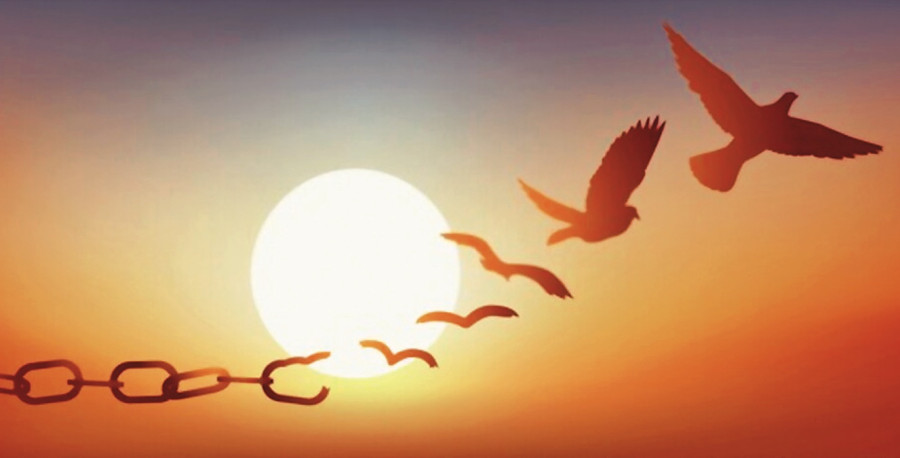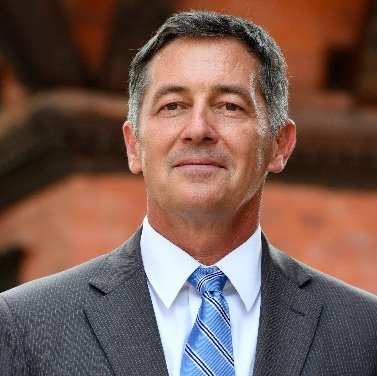Columns
Standing with Nepal’s survivors of trafficking in persons
The pandemic has further compounded the risks faced by Nepal’s marginalised communities, making them more vulnerable to exploitation and human trafficking.
Nicola Pollitt & Randy Berry
Even as a young girl, Sita’s work began at dawn. Everyone in the family needed to earn money so they could eat. There was no time for school; and in any case, there were not enough rupees to spare for uniforms or books. Although Sita’s whole family worked, there was not enough money, and Sita’s mother took a loan to feed her family. With no way to repay it, Sita’s parents sent her to work abroad, where she might earn enough money to pay off the family’s debts. Against her wishes, Sita travelled on forged papers across the border to India, and then on to the Gulf.
When Sita arrived, she was held incommunicado and forced to work nearly all day and night. The man who imprisoned Sita beat her and sexually abused her. Sita was sold again and again into squalid conditions and never received any of her pay. One day Sita escaped and found refuge at the Embassy of Nepal. Armed with new travel documents and an airline ticket, Sita returned to Nepal with nothing to her name. Today, Sita lives with the trauma of her past, but fights courageously to obtain justice through legal actions against her traffickers and abusers. The United States and the United Kingdom, through the USAID and UK aid funded Hamro Samman programme, are proud to support organisations like the shelter that provided emergency care to Sita and to the legal aid centres that fight to defend the rights of Nepal’s most vulnerable and marginalised people.
Elimination of trafficking
Stories like Sita’s are why the United States and the United Kingdom have reaffirmed our commitment to the elimination of trafficking in persons globally and in Nepal. The United Nations theme for this year’s World Day Against Trafficking in Persons—"Victims’ voices lead the way"—is an approach that both of our countries are proud to support. Inclusion and engagement are critical to ensuring that our objectives address the most salient needs of vulnerable men, women and children, persons with disabilities, and LGBTQI+ individuals who are more at risk of human trafficking, which includes forced labour, and other forms of trafficking.
The 2000 United Nations Protocol to Prevent, Suppress and Punish Trafficking in Persons, or the Palermo Protocol, acknowledges and criminalises the many incremental acts of coercion associated with trafficking, from initial recruitment to servitude. As signatories of the Palermo Protocol, both the US and the UK remain committed to addressing all forms of trafficking in persons, including forced labour and sex trafficking. Both are serious issues in Nepal, as it remains a source, destination and transit point for trafficked individuals.
According to the United Nations Office on Drugs and Crime, in the South Asia region, more than 88 percent of trafficked individuals are exploited within their home country’s borders. According to Nepal’s Ministry of Women, Children, and Senior Citizens, in 2019-20, nearly 68 percent of reported human trafficking cases involved internal trafficking, 24 percent of victims were sent to India, and 8 percent were exploited in third countries.
Crises such as the current Covid-19 pandemic, climate change and economic hardship have a disproportionate effect on people who already face adversity from marginalisation and oppression. According to the National Human Rights Commission of Nepal, around 35,000 Nepalis were victims of human trafficking prior to the pandemic, and 1.5 million were at risk. This past year’s pandemic has further compounded the risks faced by Nepal’s marginalised communities, making them more vulnerable to exploitation and human trafficking.
Ultimately, to eliminate trafficking in Nepal, we must address the underlying issues of marginalisation, discrimination and unequal access to opportunity. We must improve our ability to identify trafficking victims in our communities, and help the authorities remove victims, empower them as survivors, and hold traffickers to account. Improved victim identification at border crossings will also help to prevent trafficking to India and places farther afield.
We can reduce the vulnerability traffickers prey on by strengthening economic empowerment, inclusion, access to education and equal opportunity. Beyond our collaboration to reduce vulnerabilities in Nepal, we aim to strengthen the laws and institutions that combat human trafficking directly. These include technical support to develop a legal framework in line with international norms and the removal of discriminatory regulations that force many women to migrate and seek employment through unofficial channels. We are also partnering with the government of Nepal to improve coordination and strengthen systems at the federal and local levels, through better trained and resourced police, improved investigative police work and victim-centric judicial action, updated victim identification procedures, and effective survivor services, which are keys to success. Outside government, improved quality and access to survivor services and shelters, civil society advocacy, legal aid and private sector commitment to promoting safe recruitment and ethical employment are all keys to success.
These goals are achievable. Through USAID’s and UK aid’s support to the Hamro Samman programme, our two governments have jointly supported the people and government of Nepal to fight trafficking. For example, Hamro Samman is working in 10 districts across three provinces to strengthen local government systems and structures to better address human trafficking issues. The 2021 US Department of State’s Trafficking in Persons Report noted that despite challenges posed by Covid-19, the government of Nepal demonstrated increasing anti-trafficking efforts compared to previous years, including anti-corruption efforts, amendments to policies, and proposed changes to rules governing women seeking work abroad. The government of Nepal’s recent ratification of the United Nations Palermo Protocol, which brings Nepal in line with international treaty obligations to counter trafficking in persons, was a huge step forward. This treaty’s implementation will help ensure Nepal’s steady commitment to combat trafficking.
Policy priority
For more than a decade, through its bilateral relationship with the government of Nepal, the United States has made the global fight against human trafficking a policy priority and remains committed to this cause. With the passage of the Modern Slavery Act 2015 by the Parliament of the United Kingdom, the UK has elevated the fight against modern slavery as a key priority in its international engagement. As we look to the next year and at how we can better position our resources and capacities to counter trafficking in Nepal, we must solidify our dedication to the principles of inclusion that give voice and power to Nepal’s diverse population.
As representatives of the American and British people in Nepal, we stand by our commitment to listen to the survivors of trafficking and all of Nepal’s marginalised or disenfranchised people. Their fight must be our fight. And so, let us all commit to stay true to this year’s theme for World Day Against Trafficking—"Victims’ voices lead the way". We hear you and stand with you.




 11.71°C Kathmandu
11.71°C Kathmandu
















